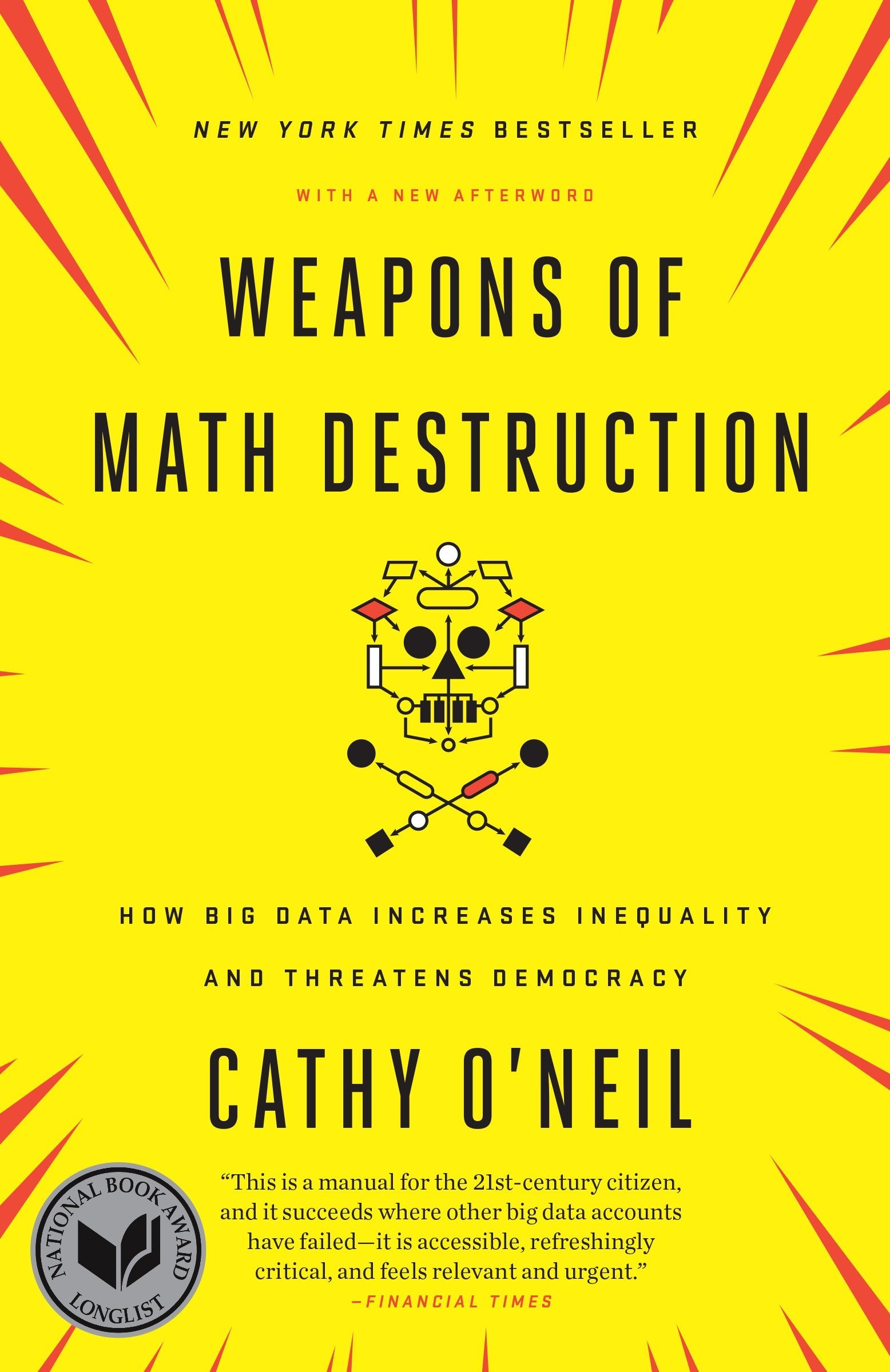
Weapons of Math Destruction
Book Review of Cathy O'Neil's book: Weapons of Math Destruction
Overview
Weapons of Math Destruction by Cathy O’Neil explores how certain algorithms trade justice and fairness for efficiency (these algorithms are referred to as “weapons of math destruction” in this book). These algorithms can perpetuate discrimination, inequality, and unfairness in society. O’Neil highlights how these harmful algorithms go unregulated, and calls for greater transparency and accountability in their development and use.
how certain algorithms trade justice and fairness for efficiency (these algorithms are referred to as “weapons of math destruction” in this book).
Why I Love This Book
Let me take you back 4 years ago to when I was a freshman studying finance. I didn’t have much direction as far as career path went, and I didn’t particularly enjoy the classes I was taking. In my first semester, I was in a writing class and somehow ended up on the topic of algorithms as a writing topic. Although I had never thought about pursuing statistics or mathematics, I found the topic of algorithmic bias to be interesting. For the research portion of this writing project, I submitted a youtube video that I made comprised of clips of people talking about algorithmic bias. Cathy O’Neil was one of the people I included in the video, and I cited a her book in my paper, but I never actually read the book.
My video that I clipped together four years ago highlights some specific examples of algorithmic bias. Cathy O’Neil is the first speaker in the video, I included clips of her from a Ted Talk that she gave. The video is included below:
Simply put, this book has a special place in my library because it was one of the sources of inspiration that helped me switch to data science.
What I particularly liked
The thing that I liked about this book is quite general, but I enjoyed the topic of the book (It’s not a cop-out I swear). The reason that I liked the topic of algorthmic bias is because it is something that I had never thought about before. I had never considered the consequences of implementing a possibly racist, sexist, or any other kind of descriminatory algorithm into an important process in society. Another thing I had never thought about was the fact that important algorithms that are used in many aspects of society are shrouded behind ‘intellectual property’, which would allow these algorithms to impose any kind of discrimination and nobody would know. I found the topic of algorithmic regulation to be very interesting. This book is full of ideas that are not commonly addressed, and yet are very impactful in today’s society.
What I did not like
To be completely honest, the book was a little bit of a downer. It is one of those books where you gain valuable insight into potential threats that society is facing, but there is not much hope given to fix the potential threat. One of the more depressing parts of the book is where Cathy explains the difficulties of dismantling these harmful algorithms. Due to the way our society works, these algorithms are protected by intellectual property laws and it is completely up to large corporations to make sure that the models they are using are not causing harm in society. This is a difficult task because we know that large corporations are not always the most ethical, and it is easy to assume that they would happily trade fairness for efficiency.
New Zealand proposed a law that sets criteria on algorithms to ensure equality, as well as increase transparency of algorithms that are currently being used. An older article from 2020 describes their proposal here:
New Zealand Has a Radical Idea for Fighting Algorithmic Bias: Transparency
I give this complaint only because I’m required to find one. At the end of the day, it is worth reading somewhat depressing material in order to gain valuable insights into the issues that our world is facing. “C’est la vie”, as the French say.
Summary
Overall, Weapons of Math Destruction is a powerful exploration of ideas that are often overlooked, yet have far-reaching implications in our society. I would recommend this book to anyone that fits into either of these two categories: First, anyone that is interested in data science. It is important for data scientists to understand the impact that their work can have on society. Second, anyone who has never been exposed to the idea of algorithmic bias. Whether you are a mathematician or not, it is still easy to understand the concepts that are discussed in this book.
Rating
I give this book 4.5 stars. I would give it 5 stars, but I feel that the content does not attract an incredibly wide audience.

Acknowledgements
I would like to thank my favorite editor, ChatGPT. I am practically illiterate, which means my writing is often times unintelligible. To account for this, I will write out what I THINK is a cohesive paragraph, then pass it to ChatGPT with the prompt “make this sound better.” I will then take the response from ChatGPT and edit it down to remove or fix any contextual errors that it may have added.
I invite anyone that is not familiar with the implications of algorithmic bias to read this book. It is an important concept for stat scientists to understand.